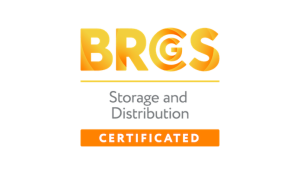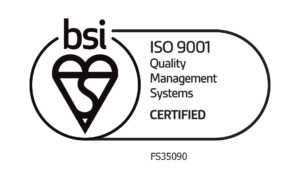A Look at What 2021 Holds for Logistics
It’s no surprise that 2020 has been challenging but with 2021 only just beginning we have hope for a brighter year. In light of this, we are taking a look at what the new year holds for logistics – hopefully, less of the same four walls.
Despite the challenges last year brought, logistics as a whole carried the nation forward, delivering goods throughout the pandemic. And with the impact that lockdown had on the UK’s online shopping habits, business was as demanding as ever. According to the Office for National Statistics, internet shopping in May 2020 accounted for 32.8% of total retail sales, up from 18.1% the previous year.
This momentum is expected to carry on throughout this year, especially as the economy battles through a transition from recession back to the booming economy that we all enjoyed before COVID-19
Warehouse Automation
In a socially distanced world, we can expect to see an increased reliance and investment in both warehouse automation and artificial intelligence (AI). Warehouse automation, such as pick and place technologies, improve efficiency, speed and productivity by reducing human interventions. AI is set to play a key role in logistics in future years, with uses in haulage when it comes to route planning and prediction, as well as in warehouse management through the prediction of rotation of supplies.
Logistics companies are also aiming for a more elastic approach to cope with demand spikes or falls caused by major events such as holidays and lockdowns. Elastic logistics typically means using a transportation management system (TMS). When combined with AI advancements, a TMS acts as an early warning system to help to forecast risks, costs and demand to ensure the “on-demand” delivery that consumers now expect.
Sector Growth
According to JTL Truck Driver Training’s Trucking Industry Outlook for 2021, increased driver hiring, wages, and demand are all expected for 2021. As the Coronavirus vaccine is distributed across the UK, more specialised cold chain equipment and drivers will be needed. Between shipping the vaccine and accompanying goods as well as essential items, trucking companies will need more drivers to deal with the increased demand. This increased demand means drivers will be better paid and have higher job security.
Green, Green, Green
The drive towards net-zero will play a significant role in the future of logistics. The sustainability drive is particularly integral to future transport developments, including vehicle pollution problems. In central London, for example, 2019 saw the introduction of the world’s first Ultra Low Emission Zone (ULEZ) and Clean Air Zones (CAZs) are set to launch in Bath on 15 March 2021 and Birmingham on 1 June 2021.
With further CAZs forecast, the logistics sector will have to juggle efficiency with sustainability measures. In the short term, this might mean fitting abatement technology to purify emissions or upgrading transport methods to fully electric.
The Internet of Things
The Internet of Things (IoT) will help to drive value within the supply chain by connecting nearly everything together, from people to parcels. The data provided by IoT devices allows logistics companies, among other benefits, to track shipments in live time and predict crucial maintenance. The same technology allows consumers to check when their much-needed parcel has left the warehouse and been delivered to their door, helping to reduce theft. And if internet shopping is to maintain its increase in numbers then this data will be invaluable to both logistics operators and the consumer.
With 2020 behind us, and a look forward providing much to talk about, join the conversation via our Twitter and LinkedIn pages. What do you think 2021 holds for the future of logistics?






